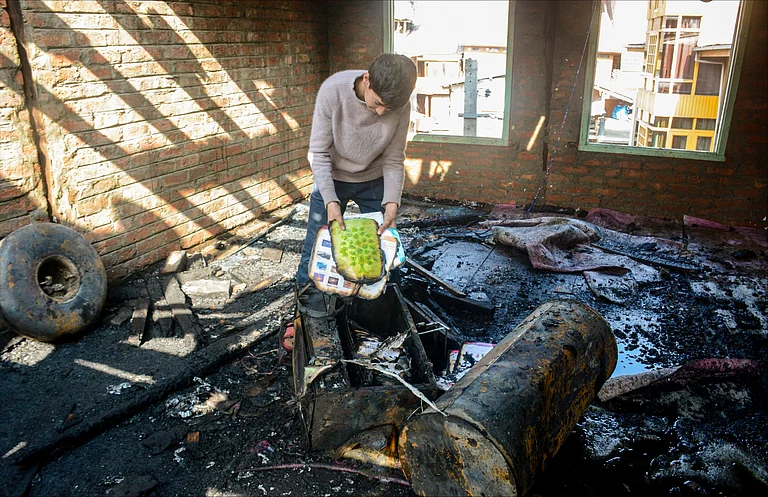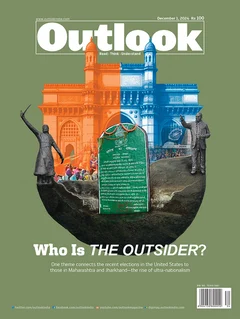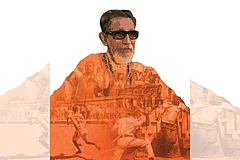After last year’s Conference of the Parties to the United Nations Framework Convention on Climate Change (COP-28) event in the United Arab Emirates (UAE), this year’s COP-29 is being hosted by another petro-state, Azerbaijan, in its capital Baku. Azerbaijan is one of the oldest oil-producing countries in the world, with its oil and gas production accounting for nearly 47.8 per cent of its GDP and over 92.5 per cent of its export revenue in 2022. Postage stamps and sheets issued this year by the country provide a fascinating look at the evolution of the oil and gas industry in the country and its transition towards green energy.
One sheet, published in September this year as part of a series, reads “History of the Oil Industry” and it bears three stamps. These stamps mark key milestones in the development of the oil industry as indicated by their captions that translate into: “The first industrially drilled oil well in the world, 1846”, “The world’s first oil tanker ‘Zoroaster’, 1877” and “World record for oil production, 1901”. Historically, oil seepage had been observed on the Absheron Peninsula for many centuries, and the Fire Temple of Baku was known for the eternal flames that were fed by fossil fuels oozing through the underlying ground. The Nobel brothers entered the oil business in Baku in the late 19th century, and it was Ludvig Nobel who commissioned the world’s first bulk oil tanker ‘Zoroaster’. In the process, Ludvig earned himself the title of the ‘Oil King of Baku’.
Another set of stamps, again issued in September this year, commemorates the 30th anniversary of the Contract of the Century. In 1994, after independence of the country from the Soviet Union, Heydar Aliyev, the then president of the Republic of Azerbaijan, pushed forward the ‘Contract of the Century’ initiative, which would prove to be transformative for the country’s economy. The contract is a production-sharing agreement on the Joint Development of the Deep Water Reserves of Azeri, Chirag and Gunashli. It involves 13 leading oil companies, including SOCAR (State Oil Company of Azerbaijan), AMOCO, BP, McDermott, and Exxon, registering participation from eight countries such as the US, the UK, Russia, Turkey and Saudi Arabia, among others. In his speech on the occasion of the signing of the contract, President Heydar Aliyev stressed, “By signing this contract we want to display to the world once again that Azerbaijan is a sovereign, completely independent state and her people are the right owners of their natural resources.”

Additionally, two sheets from the September 2024 issue display the Caspian Sea Oil Platforms and mark the 75th anniversary of the Oil Rocks. Postage stamps provide a window into the history and culture of a state. They commemorate the achievements of the country, celebrate the contributions of its famous people and even propagate awareness messages for the public by featuring related imagery in miniature format. When viewed collectively, these stamps offer an interesting visual representation of the issuing country’s past, its current socio-economic conditions and its future aspirations. And Azerbaijan is no different.
Some of the earliest stamps in the world associated with the modern petroleum industry, dating all the way back to around 1920, have been issued by Azerbaijan. Over the years, Azerbaijan has exhibited a rich tradition of publishing a number of oil and gas-related postage stamps and sheets, much to the delight of the small global community of petro-philatelists. These stamps offer an impressive range to the interested collector—they go from displaying images of oil barons such as the Nobel Brothers and Haji Zeynalabdin Taghiyev, celebrating key anniversaries of the Contract of the Century and the State Oil Fund of the Republic of Azerbaijan (SOFAZ) to honouring their leader Heydar Aliyev—who played a key role in shaping the oil strategy of the country—through joint issues with the SOCAR.

While fossil fuels are an important resource for the country, Azerbaijan has welcomed the opportunity to host the climate summit this year to showcase its efforts towards a green economy. In the COP-29 Presidency Action Agenda Letter of September 2024, the COP-29 President Mukhtar Babayev states, “Climate action is a common commitment that requires action and leadership from everyone. Through the COP-29 Action Agenda, we wish to give everyone an opportunity to sign up, speak up and step up. This is how we seek to build momentum to enhance ambition and enable action and move forward in solidarity for a green world.”
President Ilham Aliyev declared 2024 as the “Year of Solidarity for a Green World” and promoted this theme by issuing postage stamps. The stamps display solar panels, windmills and recycling elements. The green colour features prominently on these stamps in a bid to support the green economy. As Azerbaijan takes on the mantle of the host of the climate summit this year, one hopes that the country will walk the talk and strive to realise progress towards energy transition and net zero ambitions.
(Views expressed are personal)
MORE FROM THIS ISSUE
Sona Maniar is an Engineer and an MBA and has a keen interest in Energy, Writing and Philately































